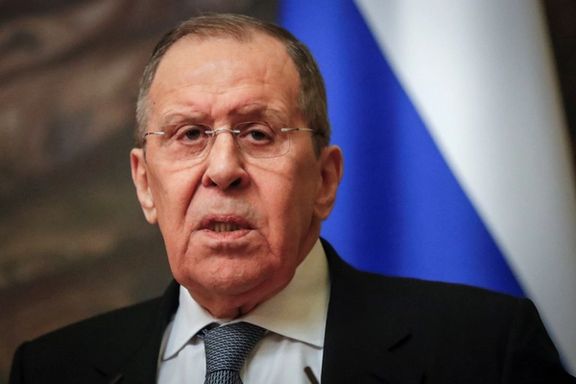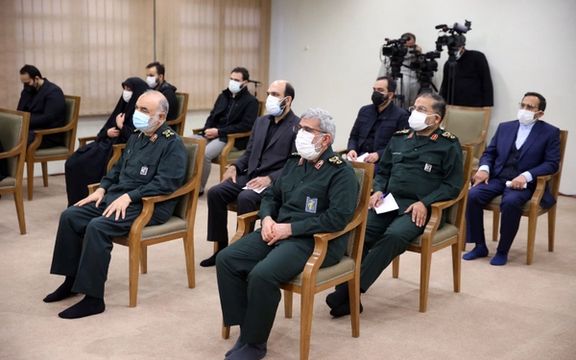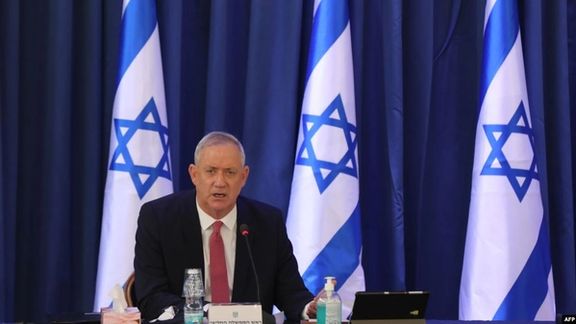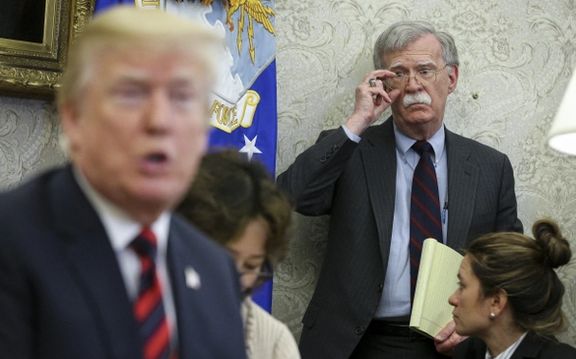Some Democrats Skeptical Of Biden Effort To Revive Iran Nuclear Deal

Some Democrats in Congress express concern that renewing the 2015 Iran nuclear deal would be of less value as the United States has lost time and leverage, The Hill reported.

Some Democrats in Congress express concern that renewing the 2015 Iran nuclear deal would be of less value as the United States has lost time and leverage, The Hill reported.
In the report published on Monday, The Hill also noted a complaint from Congresspeople that they were unaware of details in the Vienna nuclear talks.
Former president Donald Trump pulled the US from the agreement, the JCPOA in 2018, imposing ‘maximum pressure’ sanctions and prompting Tehran from 2019 to boost its nuclear program beyond JCPOA limits.
The Hill added that JCPOA opponents were also arguing that Russian involvement in re-implementing the deal, including removing enriched uranium, would see Tehran paying fees to Russia when the US is sanctioning Moscow over Ukraine.
“There’s been a little bit of insight as to how things are going but there’s no bigger picture insight,” said Senate Foreign Relations Committee Chairman Bob Menendez – one of four Democrats who in 2015 backed an unsuccessful anti-JCPOA Republican resolution. “It’s hard to judge.”
Menendez said that “if Iran is going to roll back its nuclear program, if it’s finally going to come clean on its efforts to achieve nuclear weapons and give access to the IAEA [International Atomic Energy Agency] …if Iran is going to constrain its missile program…those are good things.” But Menendez argued that “if what we may have…is just a rolling back of time, you can’t roll back knowledge.”
Tehran has refused calls for limiting its ballistic missile program and ending its aggressive regional interventions.

Foreign Minister Sergei Lavrov says Russia never betrays Iran and does not pursue selfish interests in the reinstatement of the 2015 nuclear deal despite a possible boost to world oil supplies.
Lavrov made the remarks on Saturday in response to a question whether restoring the Joint Comprehensive Plan of Action (JCPOA) was advantageous to Russia, considering that it would resume Iranian oil supply to the global market.
"We never betray our friends in politics. Venezuela is our friend, and Iran is a state that is very close to us. Secondly, we do not pursue selfish interests, unlike the Americans", he told finalists in the Leaders of Russia competition.
"You can see what they [the Americans] are actually doing, trying to spite Russia and teach it a lesson,” Lavrov added by considering adding Iranian, Venezuelan and other oil supplies to the international market.
"So, the Americans have been contacting Saudi Arabia, the Emirates and Qatar regarding oil and gas. All of those countries, just like Venezuela and Iran, clearly said: when we discuss issues pertaining to the appearance of new actors in the oil market, all of us are committed to the OPEC+ format, where quotas for every actor are discussed and agreed upon by consensus", he said, noting that "For now, I see no reason to believe that this mechanism may somehow be dismantled. No one is interested in that”.

Iranian analysts abroad say it is unlikely Tehran would limit activities of the Revolutionary Guard just to have its terror designation lifted by Washington.
Observers in Iran and abroad have been saying during the past weeks that the issue of the IRGC's designation as a foreign terrorist organization (FTO) is the main hinderance to a renewed nuclear agreement between Tehran and Washington.
Mehdi Mahdavi Azad in Germany and Houshang Hassanyari, a military analyst in Canada, expressed skepticism to Iran International TV on Saturday about Iran's willingness to seriously limit the role of IRGC and its Qods Force.
When on Friday reporters asked White House Press Secretary Jen Psaki how far the Biden administration is ready to go in its attempt to salvage the remains of the Obama-era nuclear deal with Iran, she evaded the question.
Psaki said negotiations were still ongoing and had nothing more to offer. Meanwhile, she refused to address their concern about whether secret negotiations with Iran "are turning into negotiations with terrorists."
Mahdavi termed the secret negotiations between Iran and the United States over the IRGC issue, "JCPOA-2". He pointed out that in fact this was the term Supreme Leader Ali Khamenei had used in a March 2016 speech. According to Mahdavi, Khamenei defined JCPOA-2 as a model the United States and other Western states had suggested for reducing tensions in the region. "Khamenei said at the time that if he accepted the idea, the Westerners would then ask for the disbanding of the IRGC Qods Force," Mahdavi said.
The analysts maintained that whatever the world knows as Iran's revolutionary foreign policy fully involves the IRGC and its Qods Force. If Tehran is negotiating with Washington over IRGC’s role, it simply wants to make sure that the terrorist designation is lifted.
Asked if this could change the Islamic Republic's foreign policy, Hassanyari said: "This would be the biggest retreat for the Islamic Republic and its leader Khamenei. The IRGC's role in the region has been one of the most important problems US officials are focused on." Hassanyari agreed with Mahdavi that it is the IRGC carries out the Tehran's regional policy.
Mahdavi said the reason the Islamic Republic has not admitted that talks are taking place about the role of the IRGC, is because people in Iran will ask why Khamenei had not done this during the past ten years and allowed a large part of the population to go into poverty. Naturally, if Khamenei has to negotiate with America, it has to be done secretly. Mahdavi added that the Iranian regime might have to undermine its credibility before its own supporters and give bigger concessions to the West if it feels that it is the only way out of problems it faces.
Hassanyari said that the fate of Iran's proxy groups in the region are also part of the negotiations. This will further humiliate the Islamic Republic both at home and in those countries where it has heavily invested to build influence.
In another part of the interview, Mahdavi said that the Obama administration ignored the demands of regional countries including Israel when it forged the 2015 agreement with Iran. However, the Biden administration is paying more attention to the growing concerns in Israel and Arab countries about a compromise with Tehran particularly as Iran has been launching attacks on some Arab countries and intervening in the affairs of other Arab states.

Israel's Kan 11 television says defense minister Benny Gantz refused to join a statement, openly opposing the US over delisting of Iran's Revolutionary Guards.
Prime Minister Naftali Bennet and Foreign Minister Yair Lapid issued a statement on Fridaycriticizing what they said was US intentions to remove the Revolutionary Guards (IRGC) from the foreign terrorist organizations blacklist. They appealed to the United States not to delist the top military force of its arch-foe, which it considers as a threat to Israel's existence.
The state-owned Kan 11 on Friday said that Gantz refused to sign the scathing statement.
Gantz spoke with the US Defense Secretary Lloyd Austin hours after the statement issued and thanked the US Senate for approving a $4.8 billion defense aid package for Israel. According to a statement issued by the Defense Minister's office, Gantz and Austin "discussed the details of the emerging nuclear agreement and Israel's position regarding its components."
The delisting of the IRGC appears to be Iran's last condition for signing a deal after nearly a year of intense negotiations to restore the 2015 nuclear agreement, the Joint Comprehensive Plan of Action (JCPOA).
Kan 11 said Israel does not believe that Iran will abide by any commitments it may make in a new deal. Reports have said that US is seeking a guarantee from Tehran to curtail IRGC activities beyond Iran’s borders.
"The attempt to delist the Iran's Revolutionary Guards as a terrorist organization is an insult to the victims,' Israeli Prime Minister Bennett and Foreign Minister Lapid say in a joint statement Friday.
The statement comes after State Department spokesman Ned Price on Wednesday said Washington and Tehran were "close to a possible deal" but "not there yet". "We do think the remaining issues can be bridged," he added.
Under former President Donald Trump in 2019, the United States designated the IRGC as a "foreign terrorist organization" after unilaterally withdrawing from the JCPOA and imposing draconian sanctions on the Islamic Republic.
"Prime Minister Naftali Bennett and his ministers don’t make a habit of squabbling publicly with the Americans, but they have plenty of complaints about flaws in the new agreement, which they believe will leave Israel in a more dangerous position than after the original 2015 nuclear deal," a commentary in Israel's Haaretz on Friday said.
The White House Spokeswoman Jen Psaki said Thursday that there is "ongoing negotiation" over delisting the IRGC. "I’m not going to get into specifics of it.But I would just note that the status quo where we stand has done nothing to make us safer in any regard.In fact, the Islamic Revolutionary Guard has only been strengthened," she said.
Psaki also said the notion that the actions of the past administration pulling out of the Iran nuclear deal has reduced the actions or the escalatory behavior of the Iranian Revolutionary Guard "is inaccurate". "They’ve actually -- the Iranian government has actually doubled their budget or something like that," she added.
Iranian officials have not recently spoken of delisting the IRGC as a condition to signing an imminent deal but on March 9 a member of the parliament's National Security and Foreign Policy Committee, Hossein Noushabadi, said the issue of delisting the IRGC had repeatedly been discussed during the talks in Vienna with "promising results".

Israel’s prime minister and foreign minister have called on Washington to keep Iran’s Revolutionary Guards on its list of ‘foreign terrorist organizations.’
“The Revolutionary Guards are a terrorist organization that has murdered thousands of people, including Americans,” Naftali Bennett and Yair Lapid said in a statement. “We have a hard time believing that the United States will remove it from the definition of a terrorist organization.”
During negotiations since April 2021 to revive the 2015 nuclear deal, Tehran has made clear it expects the United States to lift a raft of ‘maximum pressure’ sanctions introduced after the Trump administration in 2018 withdrew the US from the deal, the JCPOA (Joint Comprehensive Plan of Action).
There has been speculation that one of the disagreements in not concluding a nuclear deal is over delisting the IRGC. Opponents of the JCPOA in the US and Israel are aware than not delisting the IRGC would make it harder to gain acceptance in Tehran for reimplementing the agreement, which limited Iran’s atomic program.
Shared global mission
The statement from Bennett and Lapid portrayed IRGC designation as part of a “global fight against terrorism…a shared mission of the entire world.” To remove the designation, they said, would mean the US abandoning “its closest allies in exchange for empty promises from terrorists.”
Former United States president Donald Trump added the IRGC to the list in 2019, the first time part of a state’s armed forces was included. Trump’s designation referred specifically to the 1983 bombing of a marine barracks in Lebanon, carried out by a Lebanese Shia group when the US intervened in the Lebanon war after the 1982 Israeli invasion, and the 1996 Khobar Tower bombing in Saudi Arabia, culpability for which has never been conclusively established.

The Israeli statement portrayed the IRGC as controlling a range of groups across the Middle East. “The Iranian Revolutionary Guards are Hezbollah in Lebanon, they are Islamic Jihad in Gaza, they are the Houthis in Yemen, they are the militias in Iraq,” it said.
Promise not to harm Americans
Bennett and Lapid argued against the US listing groups as terrorists only on the grounds of a perceived threat to Americans: “The Revolutionary Guards took part in the murder of hundreds of thousands of Syrian civilians, they destroyed Lebanon, they are engaged in the murderous repression of Iranian civilians. They kill Jews because they are Jews, Christians because they are Christians, and Muslims because they do not surrender to them. We find it hard to believe that the definition of the Revolutionary Guards as a terrorist organization will be abolished in exchange for a ‘promise not to harm the Americans.'”
Not only that, the IRGC, for the Israeli leaders, is an “integral part of the murderous repression machine in Iran” whose “hands are stained with the blood of thousands of Iranians and the trampling of the soul of Iranian society.” Hence, argued Bennett and Lapid, removing the IRGC from the list would be “an insult to the victims and the erasure of a documented reality, with unequivocal evidence.”
Collision course
Reports say the Biden Administration is considering removing the IRGC from its ‘foreign terrorist’ list a part of agreement to revive the JCPOA limiting Iran’s nuclear program. But JCPOA opponents in Israel, the US and elsewhere have highlighted the IRGC recently firing a dozen ballistic missiles at Erbil in northern Iraq after an Israeli airstrike killed two Iranian soldiers in Syria. Iran claimed that it targeted an Israeli intelligence base, but Iraq and the US dismissed the claim.
Following a House Armed Services Committee hearing Thursday, Democrat congresswoman Elaine Luria, a naval veteran, tweeted that reviving the JCPOA would “put Iran and Israel on a collision course,” echoing remarks by Israel’s ambassador to the United States Michael Herzog.

Former US national security adviser John Bolton says restoring the 2015 nuclear deal is a "terrible mistake" and insists the Iranian regime must be overthrown.
Calling the 2015 deal, Joint Comprehensive Plan of Action (JCPOA) a "bad deal," Bolton told Iran International television on Thursday that going back to it is a "terrible mistake for the United States and anyone who believes in peace and regional security."
"The concessions that were made to the mullahs in Tehran to get the deal put back together make it even worse. It was supposed to be about nuclear matters and not about terrorism. If it's about terrorism, there is a lot more to do, to discuss with Iran. But to take the IRGC off the terrorism list I think would be a big mistake," he said, adding that it is the fundamental elements of the deal itself that are bad too.
"That's the real problem," he said, adding that the administration of President Joe Biden is making a "strategic mistake" in seeking to restore the JCPOA. "It's a sign of weakness and lack of strategic vision."
American and Israeli sources told Reuters and Axios that the Biden Administration is considering removing the Revolutionary Guards (IRGC), which was blacklisted by the Trump administration in 2019 as a terrorist organization, in return for a commitment by Iran to "reign in" the guards.
Bolton also referred to the recent Russian demand for US guarantees that its cooperation with Tehran would not be blocked by Ukraine sanctions, criticizing the Biden administration for granting a waiver to Moscow for nuclear work in Iran. He Russia won "one more concession from the Biden administration", and they will continue to have the same role they had in the 2015 deal and perhaps an "expanded role" in the revived agreement. "This gives Russia a legitimacy that it doesn't deserve at this point."
Bolton who has always advocated regime change in Iran sought complete withdrawal from the 2015 nuclear deal with Iran and said the deal was so bad it could not even be fixed. Bolton, Israeli Prime Minister Benjamin Netanyahu and Secretary of State Mike Pompeo in 2019 prevented Trump’s attempts to open diplomatic channels with Iran.
The Iranian regime is "rogue", Bolton said, emphasizing that it must be "overthrown" and "the Iranian people get to have a say who their government is."
Trump did not go along with some of Bolton's major hardline positions such as seeking regime change in Iran and in September 2019, he said on Twitter that he had dismissed him due to the many disagreements between them. Bolton later told the media the president had never asked for his resignation and that he had resigned of his own accord.
Iran on January 8 added Bolton's name to its blacklist of US nationals it accuses of having a role in the decision-making, planning, organizing, financing, directing or carrying out the strike that killed the IRGC Qods Force commander Ghasem Soleimani at Baghdad airport in January 2020.
Earlier this month, the Washington Examiner quoted a Justice Department official as saying that there was enough evidence to indict two IRGC agents who allegedly had plotted to assassinate Bolton but the Biden administration was resisting any public measures for fear that it could derail the Vienna negotiations with Tehran.
Bolton said he could not reveal the details of the alleged assassination plot but considers being sanctioned by Iran, Russia, and China "a badge of honor".